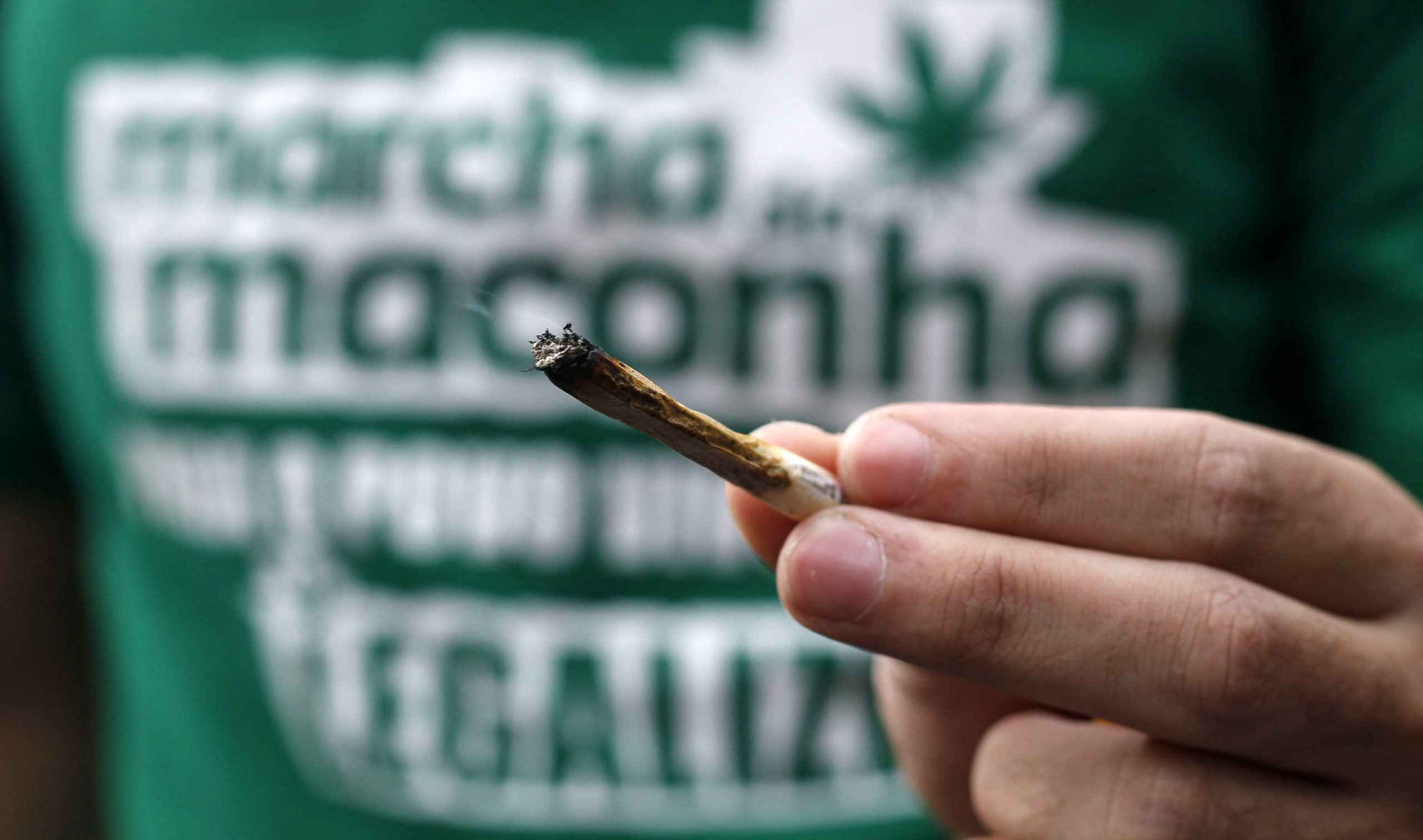Nine years into the case, the Brazilian Federal Supreme Court (STF) decriminalizes possession of marijuana for personal use
The trial began in 2015 and has been interrupted several times. In total, five justices already voted to no longer characterize the possession of marijuana as a crime, and three were against this proposition
 Marcha pela legalização da maconha na Avenida Paulista, São Paulo, em 1º de junho de 2019. / AFP / Miguel SCHINCARIOL
Marcha pela legalização da maconha na Avenida Paulista, São Paulo, em 1º de junho de 2019. / AFP / Miguel SCHINCARIOL
Updated June 25, 2024
Nine years into the case, the Federal Supreme Court (STF) decided this Tuesday (25) to decriminalize the possession of marijuana for personal use. The votes tallied were 6 for and 3 against decriminalization.
With this decision, no person that acquires, stores, transports or carries up to 40 grams of marijuana for personal consumption is considered as committing a criminal offense. The Supreme Court did not legalize the possession of marijuana. Possession for personal use is still characterized as illicit behavior; in other words, smoking the drug in public places is still prohibited, but the consequences are now administrative and not criminal in nature.
Read more
The Supreme Court judged the constitutionality of Article 28 of the Drug Law (Law No. 11,343/2006). To differentiate between users and dealers, the rule establishes community service sentences, warnings about the effects of drugs and mandatory attendance at an educational course.
Remember the lawsuit
The lawsuit was filed by the Public Defender’s Office of the State of São Paulo to defend a man convicted of possession in 2010, after being caught with just three grams of marijuana. The lawsuit puts into question the constitutionality of article 28 of the Drug Law, which establishes sentences for those who “acquire, store, transport or carry drugs for personal consumption without authorization or in violation of a legal determination”.
The trial began in 2015 and has been interrupted several times. In total, five justices already voted to no longer characterize the possession of marijuana as a crime, and three were against this proposition. However, the eight justices who have already voted in the decision consider that a threshold must be defined on the quantity of drug that makes a person be characterized as a user, but they differ on how this should be implemented.
The lawsuit also became a point of tension between Congress and the Supreme Court. In a heated exchange between the branches of power last year, the chairman of the Senate, Rodrigo Pacheco (PSD-MG), presented a Proposed Amendment to the Constitution (PEC) 45/23 that criminalizes the possession or carrying of drugs, regardless of quantity. This regressive measure was passed by the Senate in April, in two consecutive voting rounds, and approved last week by the Constitution and Justice Committee (CCJ) of the Chamber of Deputies. A special commission will now be created to discuss the merits of the measure. Social movements and civil society entities are monitoring this process through the joint campaign “Usuário não é Criminoso” (Users are not Criminals, in a free translation).
Last Sunday (15), opposing the passing of PEC 45, the Marijuana March took thousands of people to the streets under the subject “Building a Future without War”, with protesters calling for an end to the war on drugs, which is the fuel of the State’s war against black people, the poor and those living in favelas.
Drug policy and incarceration
At least 30% of the approximately 820,000 people arrested in Brazil were sentenced due to acts addressed by the Drug Law. Out of all women arrested in Brazil, approximately 60% are doing time for drug-related offenses. The war on drugs has also been used as rationale for violent police actions, massacres and the extermination of the country’s black and poor people.
Research shows that despite all the money invested in prohibition, drug use is increasing. According to the 2021 World Drug Report by the United Nations Office on Drugs and Crime (UNODC), around 275 million people used narcotics in 2020. Based on demographic changes alone, current forecasts suggest an 11% increase in the number of people using drugs globally by 2030.
The problem of mass incarceration without reducing drug trafficking or even drug use shows how the Drug Law and the entire criminal policy around it have both failed. Both article 28 and the Drug Law as a whole are criticized by human rights organizations. Even though the decriminalization of drug use does not mean the legalization or liberalization of drug consumption – rather, it means that users are not arrested, instead receiving some type of administrative sanction –, the Supreme Court’s decision for decriminalization is an important first step while moving forward in the construction of a new drug policy.
With information from Rede Justiça Criminal and Agência Brasil






